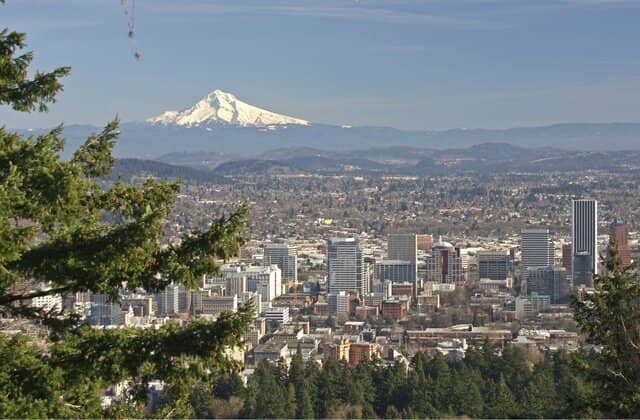Are you relocating to another state? Moving to a new state requires patience and planning. From packing goods and locating a place to live to contemplating moving choices and meeting new acquaintances. If you’ve made the decision on moving to Oregon, read our guide to learn more. Oregon is a place that can meet practically everyone’s needs. Thanks to its pleasant weather, exciting nightlife, and magnificent scenery.
1- Know The Housing Market Before Moving To Oregon
The housing market in Oregon is rather competitive. The average price of a home in Oregon is $500,527. This figure is adjusted for the season and only covers residences in the medium price range. Oregon is a hot seller’s market. Its house values are comparatively higher than the national average. Due to the scarcity of inventory in this heated market, listing prices are also soaring. Know these statistics when moving to Oregon.
2- Watch Out For The Weather Changes When Moving to Oregon
Different geographic factors influence climate change in Oregon. The Pacific Ocean regulates coastal temperatures. The middle and eastern parts of Oregon have higher temperature variations.
Summers are typically hot and dry, while winters are typically mild to cold and damp. Summer highs average 82 degrees Fahrenheit Winter highs average 46 degrees Fahrenheit. Portland has roughly 150 days of sunshine and around 160 days of rain per year.
If you want to survive the weather and natural disasters, prepare yourself accordingly when moving to Oregon
3- The Tax Rates Vary
- Sales Tax: Oregon is one of only five states in the US that does not have a sales tax. Regardless matter what you’re buying, the price on the tag is the price you’ll pay. That is one great incentive to keep residents pleased and entice visitors from nearby states to shop.
- Property Tax: Oregon is ranked 30th in the US for the lowest property taxes. Oregon’s total property tax rate is 0.90 percent, whereas the national average is 1.07 percent.
- Income Tax: The personal income tax in Oregon is progressive slightly. Marginal tax rates begin at 4.75 percent. They quickly grow to 6.75% and 8.75% as your income rises. The peak rise can be up to 9.9 percent.
4- Estimate The Cost Of Living When Moving To Oregon
The cost of living in Oregon is 30% more than the national average. However, it is still fair when compared to places like California or New York. All of Oregon’s major cities have higher living costs than the national average. It’s no surprise that Portland, the state’s largest city, is also one of its most costly cities. The cost of living there is 130.8.
Transportation costs also add to the rising cost of living in Oregon. Gas, car insurance, and maintenance, as well as public transportation, are all 7 percent more expensive on average.
5- A Wine Country
In recent years, Oregon’s image as a wine-producing state has grown. Oregon has dominated the American wine market. If you adore wine, a trip to Oregon’s vineyards and wine villages will allow you to witness personally just what the state offers.
6- Good Employment Opportunities
Intel and Nike are one of the most well-known Oregon companies. The education and health sector are also significant employers. If you wish to work for a giant firm, you’ll be pleased to learn about the state’s major employers. Don’t worry if you’d rather work for a startup. Portland is a startup hotspot.
Regentology Can Help You Buy A House in The Beaver State
The beaver state, aka Oregon, has a lot to offer to its resident. If you plan on moving to Oregon, contact Regentology for your housing needs. Whether it’s buying, selling, home loans, or insurance. We will connect you with the right agents in your area. Simply fill out the form to know more!


